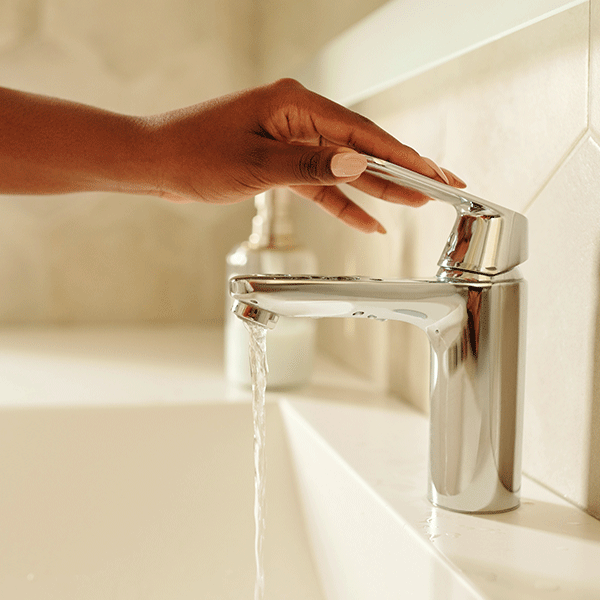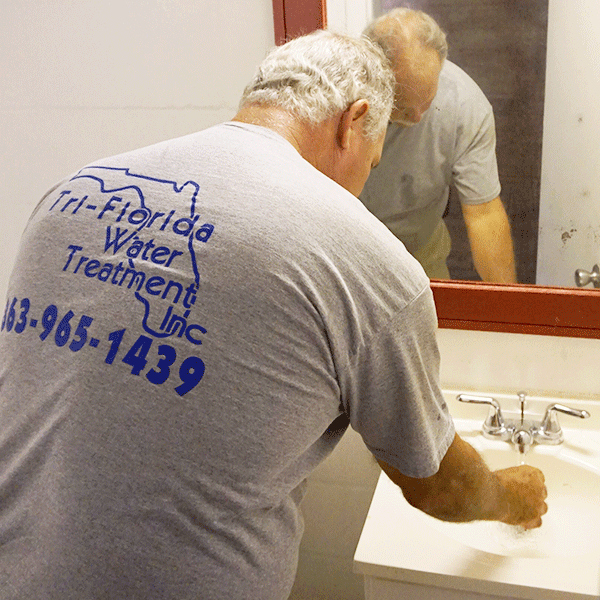Water Quality Questions to Ask When Buying a New Home
Moving into a new home is an exciting time in your life, and there are always so many things that go through your mind that it’s easy to forget to ask those important questions before you sign the contract.
Often overlooked by potential buyers is the home’s water situation. Whether or not you’ll need a whole house water treatment solution should be at the top of your list.
This post looks at the water-related questions you must ask before committing to an investment you’ll have to live with for many years to come.
 Where Is My Water Coming From?
Where Is My Water Coming From?
We all want to be as confident as possible that the water coming out of our home’s tap is safe to drink, bathe in, and cook with, so you must ask what your water source is.
Water comes from one of two sources: well water or a municipal supplier for most residents.
If you’re moving into the city limits, your water source will most likely be a public provider, and if you’re moving into a more rural area, it could be well water.
Now, most people assume that water coming from a municipal supplier is by default safe to drink because the water provider must adhere to government standards for water quality and are required to test the water for safety constantly.
However, although the EPA sets strict guidelines for what is considered safe, and despite the required testing, things still go wrong sometimes.
For example, the water might be safe after leaving the treatment plant, but it’s susceptible to contamination as it travels through the water line, into your plumbing system, and out of the faucet.
Also, water treatment facilities rely on chlorine to disinfect the water supply. And while this is a common practice that’s usually safe, sometimes chlorine levels get too high, which causes the water to smell and taste bad.
Well water also can be problematic because neither the EPA nor any governing body regulates wells, so testing the water for safety is the homeowners’ responsibility.
According to the EPA, “Organic chemicals can enter groundwater and contaminate private wells through waste disposal, spills, and surface water run-off. People that consume high levels of organic chemicals may suffer damage to their kidneys, liver, circulatory system, nervous system, and reproductive system.”
Among the problems with well water contamination, there are other issues to be aware of, such as:
- High mineral content like calcium and magnesium, what’s called hard water
- High iron levels, which can stain your tubs, sinks, and appliances
- Hydrogen sulfide, which makes your well water smell like rotten eggs
It’s essential that you ask where your water is coming from to be aware of any potential problems and consider whether you need to install a water treatment system to ensure your water is safe and give you peace of mind.
Are There Known Issues?
When you’re looking at a home, one of the first questions you’ll want to know is if there are any structural problems you need to be aware of. You should also inquire if there are any known water problems, or if there have been any significant contamination incidents in the past.
Water issues can range from hard water to recent boil orders to full-blown contamination that puts people’s health at risk.
If you’re getting your water from a public supplier, the best way to get this information is to request a Consumer Confidence Report, an annual drinking water quality report they’re required to publish.
This report summarizes the supplier’s water quality data and includes information on compliance, source water, and steps to ensure the water is safe to drink.
It will also tell you if there are any contaminants in the water and how they can affect your health.
If you’re moving into a house that uses well water, ask the previous homeowner or realtor about known issues with the water or the well itself. You can also consult with the local water expert and ask what condition the groundwater is in.
Is There A Water Treatment System?
To be clear, in the majority of cases, the drinking water you get from the tap when purchasing a new home is safe. However, many people want that extra peace of mind knowing they have a system installed that ensures that’s the case.
When purchasing a home, ask if a water treatment system is installed, and if so, what kind is it. Is it a reverse osmosis system, water softener, or water filtration system?
If there is such a system, try to determine when it was installed, whether it’s been well-maintained, and whether it’s still functioning.
 Do I Need To Test My Water?
Do I Need To Test My Water?
Now that you’ve asked the essential questions and gotten a Consumer Confidence Report, you should be satisfied that your water is safe to drink, right?
Well, not so fast.
As we mentioned earlier, water that’s safe when it leaves your public supplier can still become contaminated through the plumbing system, so it’s always wise to test the water as it comes out of the tap.
During home inspections, you can’t usually see what state your pipes are in, and testing the water can inform you if there are harmful amounts of lead or other heavy metals and contaminants that could impact your health.
Once you get answers to these questions, you can make more informed decisions regarding ensuring you and your family get the safest drinking water possible.
About Us
Tri Florida Water Treatment has over 30 years of experience serving residents throughout Lakeland, FL, and we take pride in our reliability, outstanding customer service, and high-quality work.
We’re dedicated to providing systems and services to ensure you and your family get the cleanest, healthiest drinking water possible regardless of whether you’re on well water or you get it from a public treatment facility.
If you’re interested in a water treatment system installation or getting a free in-home water analysis, contact us at 863-965-1439 or fill out our online form.
